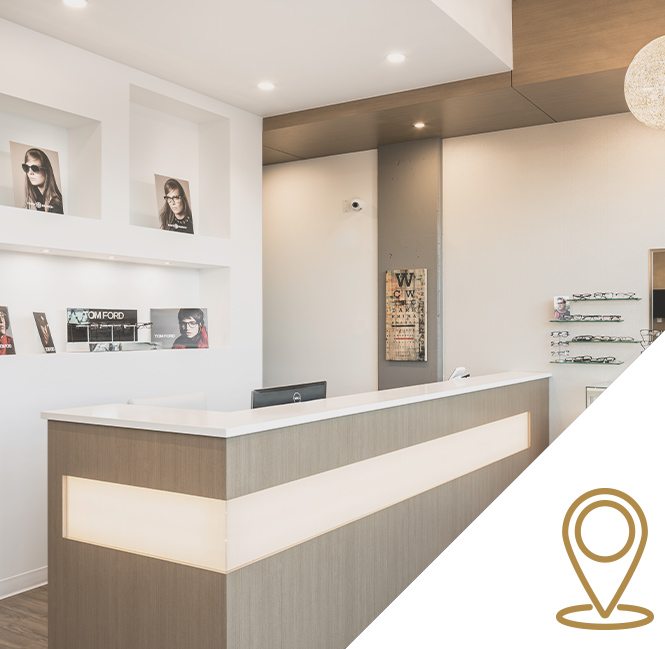As we age, our eyes go through many changes. For older adults, one of the most common changes is developing cataracts. Cataracts, the clouding of the eye’s natural lens, can significantly impact your vision and quality of life. Fortunately, cataract surgery can offer an effective solution for restoring clear vision.
Cataract surgery is a safe procedure that involves removing your eye’s natural lens and replacing it with an artificial lens. In this comprehensive guide, we will address some of the most common questions surrounding cataract surgery, dispel some misconceptions, and provide you with the knowledge you need to make informed decisions about your eye health following a comprehensive eye exam.
What Are Cataracts?
Cataracts develop when your eye’s natural lens becomes clouded, leading to a gradual loss of vision. The lens plays a crucial role in how your eye focuses light, allowing you to see clearly. As we age, the proteins within our eyes’ lenses can start to clump together, causing the lens to become less transparent. This cloudiness can interfere with the passage of light, resulting in blurry or hazy vision.
In addition to blurred vision, those with cataracts may experience:
- Double vision
- Halos in their vision
- Dull or faded colour vision
- Trouble seeing at night
- Increased sensitivity to light
- glare
What Causes Cataracts?
Cataracts can develop slowly over time, gradually affecting vision, or they can form more rapidly in certain cases, such as after an eye injury or as a result of certain medical conditions. While the primary cause of cataracts is aging, other factors, like genetics, smoking, excessive sun exposure, and diabetes, may contribute to their development.
Do I Need Cataract Surgery?
Cataracts are the leading cause of blindness in Canada, impacting over 3.5 million Canadians. If left untreated, cataracts can significantly impact your vision and ability to complete daily tasks such as driving, reading, and even recognizing faces.
When cataracts first start developing, they can often be treated with prescription glasses or contact lenses. However, once cataracts reach a certain point, cataract surgery will be necessary to restore clear vision.
How Does Cataract Surgery Work?
Cataract surgery is a safe and common procedure for removing a cloudy lens and replacing it with an artificial lens to restore clear vision. You may be provided options for your replacement lens, including multifocal and toric lenses, to accommodate other vision problems.
The surgery will most often be performed by an ophthalmologist. However, your optometrist can be a helpful resource in providing a referral, helping you choose the right option for your unique visual needs, and providing care before and after your procedure.
FAQs About Cataract Surgery
If you or someone you know is considering cataract surgery, it’s normal to have questions and concerns about the procedure. To help you prepare, we have compiled a list of some of the most frequently asked questions about cataract surgery.
How Long After Cataract Surgery Can You See?
The exact time can vary, but in many cases, you can expect to see more clearly just 1–3 days after surgery.
Depending on your specific vision needs and what type of artificial lens you have, you may still require eyeglasses to see clearly at certain distances after surgery.
How Long Does it Take to Recover from Cataract Surgery?
While you may begin to see clearly just a few days after surgery, it may take between 3–10 weeks for you to fully heal and get the full benefits of the surgery.
Your eye care team may prescribe eye drops or other protective measures to aid in the healing process. Before and after your procedure, we can provide more information on what to expect while recovering from cataract surgery based on your personal eye health.
When Can You Drive After Cataract Surgery?
In some cases, you will be able to drive a few days after surgery, but the exact timeline can vary. You will not be able to drive home on the day of your surgery, so you will need to arrange a ride to and from your appointment.
When Can You Fly After Cataract Surgery?
Flying does not typically pose a risk to eye health after cataract surgery, and most people are safe to fly the day after surgery.
With that being said, it is important to consider post-surgery follow-up appointments when planning a trip after cataract surgery. Many eye doctors recommend follow-up visits the day after surgery and about a week after surgery. These follow-up appointments are important for helping your eyes heal safely.
Preparing for Cataract Surgery
If cataracts are impacting your vision, your first step should be to book a comprehensive eye exam with your eye doctor. We can identify the signs of cataracts, answer your questions, and start the referral process for surgery if you are a candidate. Request an appointment with our team at Willoughby Doctors of Optometry to get started with an eye exam.











